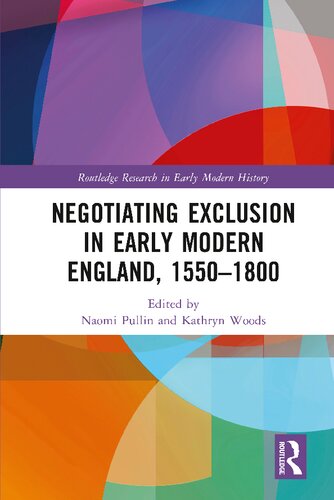

Most ebook files are in PDF format, so you can easily read them using various software such as Foxit Reader or directly on the Google Chrome browser.
Some ebook files are released by publishers in other formats such as .awz, .mobi, .epub, .fb2, etc. You may need to install specific software to read these formats on mobile/PC, such as Calibre.
Please read the tutorial at this link: https://ebookbell.com/faq
We offer FREE conversion to the popular formats you request; however, this may take some time. Therefore, right after payment, please email us, and we will try to provide the service as quickly as possible.
For some exceptional file formats or broken links (if any), please refrain from opening any disputes. Instead, email us first, and we will try to assist within a maximum of 6 hours.
EbookBell Team

4.4
82 reviewsThis edited volume examines how individuals and communities defined and negotiated the boundaries between inclusion and exclusion in England between 1550 and 1800. It aims to uncover how men, women, and children from a wide range of social and religious backgrounds experienced and enacted exclusion in their everyday lives.
Negotiating Exclusion takes a fresh and challenging look at early modern England’s distinctive cultures of exclusion under three broad themes: exclusion and social relations; the boundaries of community; and exclusions in ritual, law, and bureaucracy. The volume shows that exclusion was a central feature of everyday life and social relationships in this period. Its chapters also offer new insights into how the history of exclusion can be usefully investigated through different sources and innovative methodologies, and in relation to the experiences of people not traditionally defined as "marginal."
The book includes a comprehensive overview of the historiography of exclusion and chapters from leading scholars. This makes it an ideal introduction to exclusion for students and researchers of early modern English and European history. Due to its strong theoretical underpinnings, it will also appeal to modern historians and sociologists interested in themes of identity, inclusion, exclusion, and community.